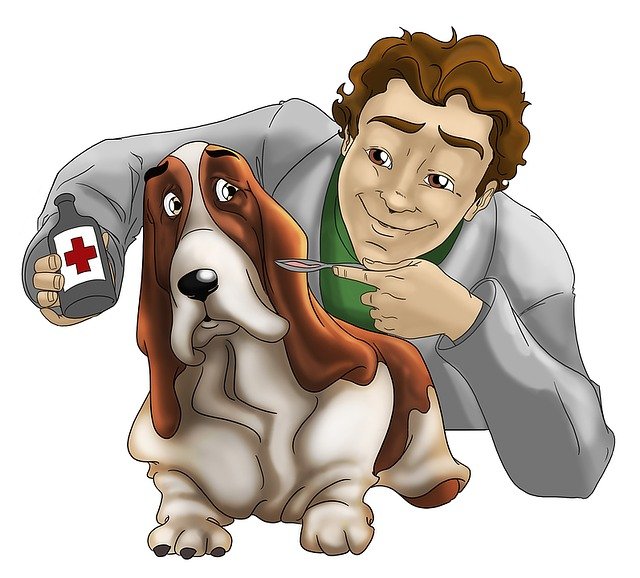
Rats are a wonderful pet. Rats are a great pet because they are social animals. They are able to be kept in small groups as they will seek shelter and food from their environment. However, they carry health risks. Your pet's health is your responsibility.
Rats are known for their ability to bite. Rats can carry diseases such as leptospirosis, which can cause fever and muscle aches. If you suspect you have been bit, get medical attention immediately. Rats are also capable of transmitting rabies from one animal to another. Salmonella can be transmitted from rats to humans, which can cause serious illness.
Rats go through a very short gestation time. They can give birth to litters of about fifteen pups at a time. They have strong teeth. They are adaptable animals that can live in both wild and populated areas. They are considered part of the mammalian order Rodentia.

They have big ears, compared to their heads. They have dark hair on their ears. The amount of hair they have on their ears, and tails, varies according to the species. Rats are also able to pierce wood and other substances. Their noses have a narrow shape. They have big front teeth.
Rats can live within human buildings. They have access to food, water, and medical care. They can also hide behind sheds, garages, and buildings. They can also reside underground. They can be kept in small groups or individually.
Rats can live in urban areas. However, they can also be found in the wild. They can be found in South America and Europe as well as Asia. They have also been introduced into the wild by humans. Rats have been known ride along ships. They were also stowed away on cargo as Asia was reached by Europeans. Europeans brought rats along with them when they arrived North America. Rats can also be introduced to homes through their chewing habits.
Rats are large and round with large fat bodies. They are very adaptable rodents. They can be kept in small groups or in individual cages. They are very social animals and will seek out food and shelter. They can bite humans if they are handled too tightly. Rats can be carriers of diseases so it is important to keep them healthy.

Rats can cause serious damage to your house if they enter it. You should seal any food or garbage stored in your home to stop rats getting inside. Rats can also spread diseases to humans by eating contaminated food and water.
A cage should be securely attached to the wall when a rat is being kept in a home. The cage must also have a solid foundation. They should be offered water in a spill-proof bowl. They can also enjoy small amounts of vegetables or treats. The treat should not be seeds or other food items.
FAQ
What amount should I spend on my pet?
A good rule of thumb is to budget around $200-$300 per month.
However, it varies based on where you live. You would spend $350 per Month in New York City.
But, in rural areas, you may only need to spend about $100 per month.
It's important to remember that you should buy quality items such as a collar, leash, toys, etc.
A crate is a great investment for your pet. This will keep your pet safe when he is being transported.
What is pet insurance?
Pet Insurance provides financial protection for pets when they are sick or injured. It also covers routine medical care like vaccinations, spaying/neutering and microchipping.
Additional benefits include emergency treatment in the event your pet becomes ill or is involved in an accident.
There are 2 types of pet insurance.
-
Catastrophic insurance - This policy covers your cat's medical expenses in the event of severe injury.
-
Non-catastrophic: This covers routine vet costs such as microchips and spays/neuters.
Some companies offer both non-catastrophic and catastrophic coverage. Some companies offer only one type of coverage.
These costs are covered by a monthly payment. The amount you spend on your pet’s care will determine the cost.
The cost of this insurance varies depending on what company you choose. Do your research before purchasing.
You may be eligible for discounts if more than one policy is purchased by the company.
Transferring an existing pet insurance policy with another company is possible.
If you choose not to purchase any pet insurance, you will need to make all payments yourself.
There are still ways you can save money. Ask your veterinarian for information about discounts.
You may be disregarded by your pet if he sees you frequently.
Another option is to adopt a pet from a local shelter instead of buying one.
You must always read the fine print, regardless of what type of insurance policy you purchase.
It will inform you of the amount of your coverage. If you aren't sure about something, call the insurer immediately.
What's the best pet?
The best pet is one that you love. There is no one right answer. Every person has his own opinion about which pet is the best.
Some believe cats are more intelligent than dogs. Others say that dogs are more loyal and loving. Still, others argue that birds are the best pet.
You must choose the right type of pet for you, regardless of what breed.
If you are friendly and outgoing, a dog might be the right choice. If you're shy and reserved, a cat would suit your needs best.
You should also consider the size and layout of your home. If you have a small apartment, you will need a smaller pet. A larger house, on the other hand will require you to have more space.
Don't forget to give your pet lots of love and attention. Pets need to be fed frequently. They should be taken on walks. They must be brushed regularly.
You'll be able pick the best pet for you if you have all of these knowledge.
Are there three things you need to keep in mind before you buy a cat?
These are the questions to ask before you buy a cat.
-
Are there any health issues in the cat?
-
Will my cat eat all the food I have prepared?
-
Is it because I am a lover of cats or do you just want a pet to play with?
How do I find out if my dog has fleas
If you notice your pet scratching at its fur, licking itself excessively, or looking dull and unkempt, then chances are he/she may have fleas.
Flea infestations could also be suspected if you notice redness on your pet’s skin.
For treatment, you should get your pet to the vet as soon possible.
Which amount cats or dogs are easier to train?
Both. It depends on how you approach training them.
If you give them treats for doing what they're supposed to do, they'll learn faster. But if you ignore them when they don't listen, they'll start ignoring you too.
There is no right or wrong way to teach your cat or dog. The best way to teach your cat/dog is the one you choose.
Statistics
- Monthly costs are for a one-year-old female mixed-breed dog and an under one-year-old male domestic shorthair cat, respectively, in excellent health residing in Texas, with a $500 annual deductible, $5,000 annual benefit limit, and 90% reimbursement rate. (usnews.com)
- Here's a sobering reality: when you add up vaccinations, health exams, heartworm medications, litter, collars and leashes, food, and grooming, you can expect a bill of at least $1,000 a year, according to SSPCA. (bustle.com)
- For example, if your policy has a 90% reimbursement rate and you've already met your deductible, your insurer would pay you 90% of the amount you paid the vet, as long as you're still below the coverage limits of your policy. (usnews.com)
- A 5% affiliation discount may apply to individuals who belong to select military, law enforcement, and service animal training organizations that have a relationship with Nationwide. (usnews.com)
- Pet insurance helps pay for your pet's medical care, with many policies covering up to 90 percent of your vet bills. (money.com)
External Links
How To
How to choose a good name for your pet?
The most important decision you will make when adopting an animal is choosing a name. You want to pick a name that reflects who they are and what kind of personality they have.
It is important to consider how other people might refer to you - for instance, if they are going to be called by their name in conversation. And finally, you should think about how you yourself would like to be referred to. For instance, do you prefer "dog" or "pet"?
Here are some tips to help you get started:
-
Pick a name that fits your dog's breed. If you're familiar with the breed (e.g. Labradoodle), search for names associated with it. Or ask someone who knows dogs well to suggest a name based on the breed.
-
Consider the meaning behind the name. Some breeds have names that are based on people or places. Others are nicknames. Because he was always running, the name Rover was given to a Labrador Retriever.
-
Now think about what you'd like to call yourself. Would you rather call your dog "dog", or "pet"? Would you rather call your dog "Puppy", "Buddy" or "Buddy?"
-
Don't forget to include the owner's first name. It is a smart idea to give your dog a name that includes both your first and last names. However, it doesn't mean you should limit yourself to just including the names of family members. Your dog could grow up to become a member of your family.
-
Be aware that many pets have multiple names. For example, a cat might go by several names depending on where she lives. While she may be called "Kitty Cat" at her home, she might go by "Molly" when visiting her friends. This is especially true when cats live outdoors. They often adopt their names to fit their environment.
-
Be creative! There are no set rules. It is important to pick something distinctive and memorable.
-
You must ensure that the name you choose isn't already owned by another person or group. That way, you won't accidentally steal someone else's identity!
-
Don't forget that choosing a name is not an exact science. Sometimes it takes time before you can determine if the name is right. Keep at it until you find the right match.